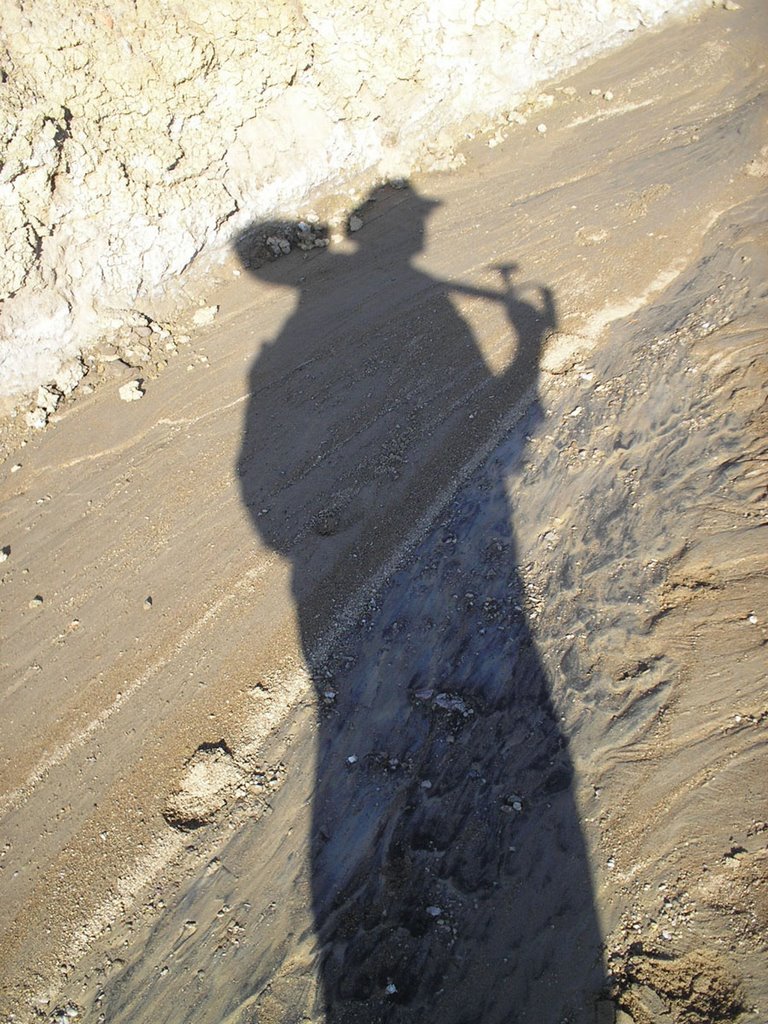
The attraction of
speculative zoology is obvious: cool critters. But there is another reason to
play the
game. It is natural for us to look at the history of life on earth and wonder how much of it was inevitable and how much was accidental. This is maybe the biggest, baddest question in evolutionary biology, and a lot of ink has been spilled over it.
Complex life was inevitable.
No it wasn't. If you replayed the
Cambrian explosion you'd get the same results.
No you wouldn't.
Speculative zoology is a way to sneak up on these questions unannounced and, just possibly, take them (and yourself) by surprise. When I ask, "What would have happened if marsupials had gotten the northern continents and Africa and placentals had been stuck with South America and Australia?" what I'm really asking is, "Would changing the players on the board make any difference after a few rounds (= tens to hundreds of millions of years) of play?" Is evolution
completely unpredictable, or are some things bound to happen just because the Earth and life are what they are?
When people ask me about contingency versus determinism in evolution, I usually pimp contingency all the way. But tonight I learned something surprising.
I was playing the God game with Randy (as described in the previous post) and he said he'd like to wipe out all eukaryotes. That's all the amoebas, fungi, plants, and animals, plus a few things you've probably never heard of. Bacteria and archaea would be the only survivors.
This suggestion momentarily discomfited me. I had a vision of the world stuck at the bacteria stage for billions of years. What if it never got past that stage? What if it was just Bacteria World until the sun went nova?
But then I thought, "Hey, wait a minute." The Earth already was Bacteria World for billions of years. But not forever. Complex life eventually got rolling. Things did come out on land. Things did learn to fly. A few things discovered fire and eventually blogging.
Don't get me wrong. I am familiar with the arguments for why all of those events were lucky breaks, one in a zillion long shots that might never be repeated. But I don't believe it anymore. I think they were inevitable. You can say, "Complex life might not evolve again" or "Consciousness might not evolve again". But you would have said the same standing on a Proterozoic beach or wandering through the rubble after
Chixulub. It would have been wrong then, and I think it's wrong now. Whatever stage or level you think life might get stuck at, it's already been through once and didn't.
"Of course you think that because you're a product of a world where life never got stuck." Yeah, yeah, take your Anthropic Principle and cram it up your protostome. When I look at the history of life, there are some plateaus, but they don't last forever. Not a one. I don't think it was inevitable that some Miocene primates would come down from the trees and end up splitting the atom, but I think the combination of intelligence, tool use, and communication was bound to come along sooner or later.
I could be wrong. I'd be happy to be wrong. The upshot is that I've thought about this stuff more intensely tonight than I ever have before in my life, and it's mostly thanks to the game.
I also want to explain the effect that speculative zoology has on me. A naive observer might think of it as an escape from the real world, dreaming up phantasms to replace the mundane critters I'm stuck with, an ultimately life-denying exercise in futility. That's exactly backward. Playing the game doesn't make me appreciate life
less, it makes me appreciate it
more.
Just think about all the totally badass things that have ever lived.
Giant pterosaurs.
Indricotherium. Conodonts. Glyptodonts.
Anomalocaris.
Dunkleosteus.
Koolasuchus (yes, really). Champsosaurs. Multituberculates. Mihirungs. Ichthyosaurs.
Carcharodon megalodon.
Sharovipteryx. Drepanosaurs.
Effigia.
Deinosuchus.
Helicoprion. Pelagic trilobites. And yes, freakin'
Amphicoelias.
In the immortal words of Tenacious D, that shit came off the top o' my fuckin' head, y'all. That's a ten-second seine haul through my RAM. The tip of the paleobiology iceberg.
Speculative zoology invites you to cast your eye over the whole Dramatis Personae of Earth's history and start rewriting their lines. You can't wish for a monotreme takeover unless you know and love monotremes.
You want to know the real whole total uncensored and unabashed truth? Screw sauropods (sorry, Mike, it had to be said). The coolest stuff that ever lived is alive
right now. Whales with
heads that wouldn't fit in your living room that live on mile-long swarms of crustaceans the size of boogers. A mammal with an electrosensory nose and poison spurs on its feet that dives for worms and lays eggs.
Snapping turtles.
Opossums.
Peccaries. Poison dart frogs. Hummingbirds, man--the whole saurischian machine, that powered animals six stories tall, crammed into a fun-size package the size of your thumb. And they fly for thousands of miles, drop their bodies into torpor, and lay eggs that are even smaller than they are (not all at once, of course). Naked mole rats. Eagles.
Hyenas. Saltwater crocs. Sturgeon.
Loosejaws. Arctic terns. Armadillos. Axolotls. Kodiak bears.
Velvet worms.
Ratites.
Hornbills. Sea otters. Manatees. Horseshoe crabs. Moray eels. Nudibranchs. Earthworms 20 feet long. Ruminants that can stand in the palm of your hand.
SLIMES.
Ants, people! Crawling all over your bodies!
I cannot contemplate this smorgasbord, this wall-to-wall concentration of coolness, without wanting to run screaming into the street, shouting and laughing and tearing my clothes off. I
exult in the facts that (1) these things are alive, (2)
I am alive to see them, and (3) this is what I get to do with my life.
That straight-up pedal-to-the-firewall mushroom-cloud-in-the-rearview-mirror
ROCKS!!Labels: Animals, Nerdosity, Not Quite Science, So Awesome I Peed A Little Bit, Speculative Zoology





























